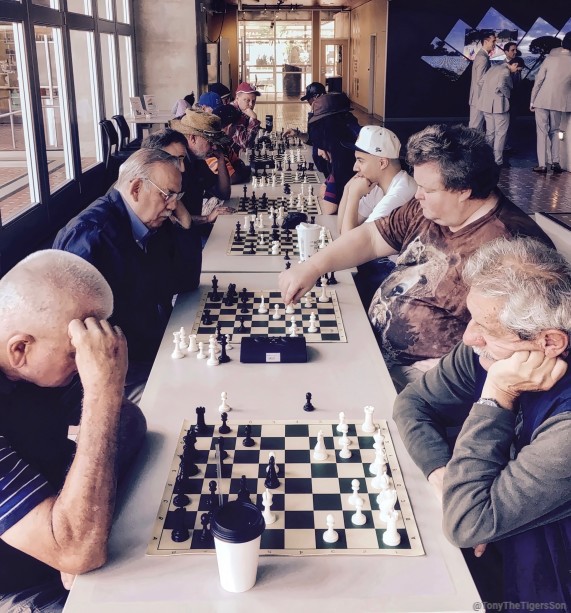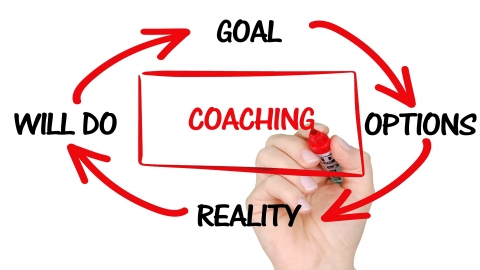

6 Strategies for Resolving Conflict
Join the Resolution!
The dictionary defines conflict as “a serious disagreement or argument”. That definition seems like a horrendous situation to be involved in!
Sure, conflict is inevitable from time to time, but to be able to exercise your emotional intelligence by actively listening, empathising, collaborating, and compromising to nurture the resolution process on most, if not everyone’s terms, and last but not least, finding compromise while staying true to your own ethics and standards that empower you.
Needless to say, it is better to resolve conflicts expeditiously rather than to let them linger. The quicker you are able to find middle ground leaving you open to consider opposite point of views, the closer you become to decreasing stress levels that prohibit an overall team-oriented atmosphere.
Conflict Can Decrease Productivity

It is true that conflict can consume you. It can wear on you emotionally and become quite a distraction. These factors alone can decrease productivity. But add to this the presence of negative energy, and the inability to tolerate being around certain people and you have yourself a recipe for disaster.
I am not suggesting that you have to be best friends with everyone that you interact with, BUT striving to keep things amicable is always an admirable goal.
Why? Because conflict can turn ugly rather quickly, and as relationships break down tolerance is lost. If you are in conflict with someone that you are unable to tolerate but are frequently around, well that can make for a very uncomfortable predicament for everyone involved.
Have Courage to Initiate Issues as They Arise
I am not suggesting that you have to be best friends with everyone that you interact with, BUT striving to keep things amicable is always an admirable goal.
You may just want to vent to a friend or colleague and avoid confrontation in hopes that the conflict will dissipate with time or bother you less after blowing off steam. Whereas it’s wise to pick your battles, so to speak, this behavior can lead to habits that influence gossip or telling jokes at someone’s expense to entertain your peers.
This is not only unprofessional, but it is hurtful and you will leave others feeling that you would do the same to them when they are not looking.
Conflict Can Strain Relationships
This is true both personally and professionally. And as you practice at finding your own voice, style, and coping skills to exhibit your prowess in problem solving and diplomacy.
Think through your social dynamics to diversify your approach and offer flexibility to any new challenges you face that require conflict resolution in the workplace and in your personal life.
"The first solution that comes to mind is not always the best solution. So, taking the time to take a step back, understand what the problem is, and then also brainstorm different ideas on how to solve it...and being able to communicate with your team and decide collectively on what the best choice is."
- Maria, Senior Specialist of Global Engineering, Merck & Co.
Major: Chemical Engineering (Bachelor), MBA (Masters)
College: New Jersey Institute of Technology, University of North Carolina (MBA)
Plan Your Work & Work Your Plan
Treat any conflict resolution like any other important meeting, presentation, or interview. Have a plan in place and be prepared to execute it.
Strategies to Consider Ahead of Time:
1. Attitude Adjustment
An essential part of effective conflict resolution techniques is to approach conversations with a neutral or positive attitude. You may be feeling angry, ignored, and misunderstood; all of which could be perfectly valid feelings!

However, if conflict resolution is the destination, perspective, empathy, and forgiveness need to be packed in your arsenal for the road ahead. Try to remain calm, listen, and be willing to compromise. If you need a minute to compose yourself, then have the foresight to take a minute and a few deep breaths. Excuse yourself and step outside if you must.
Here are more attitude-related conflict resolution considerations:
Do not turn the conflict into a personal vendetta. Avoid any name-calling and other verbal attacks. At the same time, if you feel attacked, avoid getting self-defensive and attempt to de-escalate any tensions that prohibit either party's ability to effectively listen and address the issue.
Replace any accusatory language (i.e. “you always take credit for my work” or “you never replace the toilet paper when it runs out”). Keep to the issue at hand (i.e. “there was a time when I felt my work was not recognized” or “when the toilet paper runs out, please replenish it for the next person”).
Keep your non-verbal communication in check (eye rolls, head shakes, hand gestures, etc.). Share your concerns and opinions but keep in mind that passive-aggressive behavior will hinder the message you are trying to communicate since it typically initiates defensive behaviors in response.
2. Empathy
Empathy for others is a skill that is essential when listening to points of view that may differ from your own. It may also help soften the blow to your ego as you use compromise as a bargaining chip towards striking a balance of give and take that will leave all parties feeling satisfied enough to move on.
3. Time & Place
You need to be cognizant of when and where you choose to attempt your conflict resolution. Aim for a time and place free from distraction, where all parties involved can be 100% focused on the task at hand and implementing the proper conflict resolution techniques.
For instance, you may want to put the kibosh on airing your grievances in the middle of a loud concert...or while attending your coworker’s wedding...sorry Barry. Your chance of success could dramatically take a step in the right direction by simply selecting the proper time and place.
4. Prepare for What You Hope to Achieve

There is the likelihood that you may not get everything you are asking for but start by narrowing down what it is that you really want. This will help prioritize the speaking points, rather than being led solely by emotions that can sometimes commandeer these types of discussions. Reflecting on your motivations behind conflict situations may help you narrow down your point of view, which will guide you to communicate clearly and find a solution.
What do you want the outcome to be from these proceedings? Don’t be afraid to ask yourself questions that can help you discover the importance of the conflict at hand for potential outcomes that could result within or outside of your favor. There is no shame in acknowledging that your own voice matters. Afterall, you are your best advocate and this line of questioning may prove useful to establish what you feel you can and cannot compromise on.
5. Counterpoints, Negotiations, & Leadership
Channel your innermost psychic powers and try to imagine what the other side may argue. If you can do that, you will be able to analyze your responses and counterpoints ahead of your conflict resolution discussions.
This preparation will strengthen your ability to pivot in whichever direction the discussions may take as you negotiate (remember the 7-38-55 rule) for resolution terms. By factoring in what is being communicated by the other person, both verbally and non-verbally you will then be in an optimal position to align and convey your own verbal and non-verbal messaging.
It is healthy to be competitive, but not to the point of winning at any cost. This goes for any overshadowing need to categorize who is right and who is wrong. A limited point of view will only fuel the fires of discord when all anyone really wants is to be heard and considered.
During the processes of your conflict management, exercising an open-mindedness to each person and point of view equally. We are not omniscient narrators with characters acting as marionettes to our every whim. Motivating people is a key competency that leaders use to boost team productivity, but also share successes while cheering each other on.
6. Don’t Waste Your Energy on the Past

Newton’s cradle (shown above) is a perfect example that elegantly demonstrates how the conservation of momentum and energy can be set into perpetual motion so long as the energy remains useful. However, there are often external factors that contribute to the loss of energy (such as the spheres heating up upon collision) until movement ceases.
When we dwell on the past and hold onto grudges we are misusing our energy and losing momentum to move forward.
Acknowledge the past, forgive, and learn from the experience afforded to us by our mistakes. Recognize growth opportunities as you ask yourself, “how do we resolve this conflict?”. And once it’s resolved; “how do we leave it in our rear-view mirror, stay in the present, and look towards the future?”.
Having conflict resolution skills does not require a PhD in Rocket Science or Human Psychology. It is open for us all to excel in and merely requires a little positive thinking, the ability to understand and welcome perspectives that differ from your own, then striking that balance between asserting your own needs and cooperating to accommodate the needs of others as circumstances allow.
Please take it seriously and whenever possible greet conflict with the respect and discernment you want to have reciprocated back to you as it can be an infectious way to find common ground.
Maria, Senior Specialist of Global Engineering with Merck & Co.
























